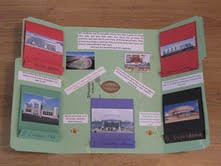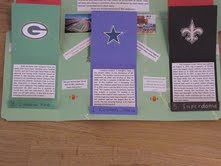Skip to Second Half of the Story if you’ve landed here from the Brave Writer ZipLine e-letter.
The following is a wonderful email exchange between one of our Brave Writer moms and me. I share it with you because these questions, so beautifully and honestly articulated by Sharon, are common to many home educators. Brave Writer is not like other writing “programs” because it focuses more on the writer, than writing. We are Brave Writer not Brave Writing for that reason.
The paradigm shift occurs when you become more aware of your child and your child’s vocabulary, insights, and stories than rules and formats for writing/narrating. You must start there, or you’ll create a blocked, reluctant, or pedantic writer. If you want to see life and power in the writing, you need to value and activate the original writing voice of your child… today, and every day. Keep reading. Like all paradigm shifts, it will feel unnatural and “wrong” at first. But over time, you’ll realize this is how you always wanted to teach writing.
I’ll be happy to answer any questions you have in the comments below.
—
Hi Sharon.
How great to hear from you! I love feedback and you certainly gave me a lot. Thank you. I have commented throughout your original below.
On Tue, Mar 6, 2012 at 10:00 AM, Sharon Jones (MD) wrote:
Julie or bravewriter staff
Want to first say a big thank you – I got the Writer’s Jungle two weeks ago and it is already making a huge difference in our homeschooling.
My ds is 9 years old and I was beginning to fret about his lack of writing skill – and we have been doing [another writing program] but I was finding the narrations in there were killing both his and my 1st grader’s desire to narrate anything. I wasn’t listening to their play just worried that they were not with joy telling me a good summary of the short story in the curriculum.
While my son is able to dictate very well as long as I am there to feed him how to spell the words – he would know what word came next but not how to spell it. [This other program] does say to just spell the word for them.
But even more, he needs to discover that it’s okay for him to misspell the word. Here’s the flip—the change you want him to make in his own thinking. He gets to take writing risks. Just like he took “talking risks” to learn how to speak. Can you remember a funny word he used to use to convey something? For instance, my daughter called our bedroom, the “dreadroom.” She called “magazines,” “mazazines.” One of my kids routinely said, “waterlemon” and “magah” instead of “watermelon” and “Gramma.” We understood them. We even used their funny words as adults because they were “adorable.”
Eventually, over time, our kids self-corrected with exposure to the “conventional” ways of saying these words. Likewise, your son will grow as a speller if he feels free to get his thoughts into writing in any form and continues to read, do copywork, and slowly discovers how to edit his original writing by looking for his own spelling errors. But that comes later. Right now, the original writing impulse is far more important than his proper spelling. You need to let him know that no one ever complimented an author on her “fabulous use of commas” or “perfect spelling.” Editors can supply those. What we are looking for is his fabulous vocabulary, insight, and experience shared in his most natural voice, even if he doesn’t yet quite know how to spell everything.
Have this conversation with him (he’s old enough and smart enough to get it). If he is utterly flummoxed (can’t even find a way to get a word down incorrectly without paralysis), he can then ask you to spell it. But what you want is an uninterrupted flow of ideas to come from him. For a little while, you may need him to dictate to you while you transcribe his original thoughts so he can get back in touch with having them without the frustration of handwriting and spelling getting in the way.
My ds is hitting a wall – where he refuses to study spelling words, and yet wants to spell perfectly to the point where he won’t write anything because he is afraid he will spell wrong. I am not sure how to address this issue except that through reading the WJ, I realized that we really had not been talking. We, I should say I, was just saying okay do this, now do this, okay time for this, your (sic) not done with that yet? Now do this, okay now your (sic) done as soon as you get that done. Yeah, not much fun!
Do this for awhile.
Then when you introduce freewriting (a practice we teach in The Writer’s Jungle), make it VERY short and focus all his energy on never stopping the pencil—even if he just writes Ahhhhhhhhhhhhhhhhh hellllllllppppppppp across the page for 3 minutes. He needs to breakthrough by letting himself defy the rules. Tell him: You get to be a rule breaker. Write whatever you want, in any way you want, but don’t stop that pencil. Ready set go! (And you freewrite too – at the same time, at the same table, with the same impatience and anxiety.) Stop what doesn’t work. Give permission to take risks. Enjoy whatever results you get (don’t scrutinize them – enjoy them).
More…
I figured I should go slow even though I was very excited and well my children are still very young. I have a lot of time I realized – so I decided the first thing was to get out of the room that is our “school” room away from the table and the white board. Oh we might go back there for some things but for now I wanted homeschool to be more about home and less about “school.”
We have a blanket we lay on the carpet as the wrestling mat – the kids connect it with fun with Dad and time to WRESTLE so I brought it out and said in the day time it is the conversation mat.
We spent a week just talking.
I found out a lot of really neat things about my kids.
I also really started to listen to them when they are playing and it is pretty funny the amount of things from school that gets incorporated into their stories.
After talking and sharing stories and letting my daughters put on a play with pet shops and stuff animals – not all in the same day mind you. The craft products that were sitting unused suddenly were remembered and they are becoming very creative.
This week I put out a copywork table with books they can choose whatever they want to copy and there is no set amount after the first one.
My dd in 1st grade has decided to copy a book of poems, my ds 3rd grade is doing random things, my 4 year old is drawing photos which I then write whatever she asks under the photo – she is pretty proud of the books she is making.
Math is still getting done and Science and History. I see my kids doing more school willingly then we were doing while I was pulling teeth to get it done. Only know they seem to think that they are doing hardly any “school” at all. Funny how that is.
I realize now how much time I have. One day I think we might take one of your on line classes.
My ideas for the rest of this year is to continue the talking and the copywork. Adding in a jar of quotes to do at some point to change it up. I also need advice for what to do with a child who is afraid to write anything least he should spell it wrong?
His spelling isn’t bad if he tries. We had been using [another program] – but the time comment for that was just getting too much with two children it takes at least 45 mins per child. Lots of people are trying to convince me that AAS is the way to go. (SWR-Spelling to Write and Read and All About Spelling). I have Spelling Wisdom – I have thought about using that for the quote jar for copy work. I also have Sequential Spelling – okay so maybe my problem is I want quick results. =)
I guess I am a little afraid to just use the copy work – well this really teach him to spell.
I think it will teach the first grader – she is reading on a 4th grade level if not higher and is my creative, language person – she was using full sentences at 18 months old. But I am not sure about my ds who is reading a bit below grade level doing math at a higher level. He is my history buff, loves science and anything factual. He only got interested in reading through Magic Tree House books. He is very particular – he likes to put his clothes on the same way each time to the point where it is almost not funny.
I am wondering about how to get someone like him to try to write.
Don’t “get him to write.” Catch him in the act of thinking. The next time he’s explaining something to you, jot it down. Grab any piece of paper handy (even the back of an envelope works) and start writing. THAT’s his writing. No more contrived methods. Capture the real words, real mind life of your child in writing.
Yes, it’s that easy. I mean it.
You can try freewriting once you are at the point where he is not pencil phobic and he really believes you that he can take writing risks. Until then, you transcribe his thoughts for him, you talk to him, you have poetry teatimeswith him, you read his thoughts aloud to his dad, you read aloud to him, he reads…. Get it?
I was thinking of getting Story Starters and Rory cubes as a fun way to do some oral stories during the mat time. Then getting something like rummy root cards to work on Latin roots in a fun way for language. Maybe getting a game like cooking up sentences to help work on some of this fear of writing sentences. Not that I can get those all at once but over time. Then maybe by half way through 4th grade my son would be ready for me to start freewriting on Fridays. I am trying to think outside the box and outside the workbook mode.
Any advice or encouragement on this would be well taken. Thank you again the change in my school day has been 100% for the better!





















